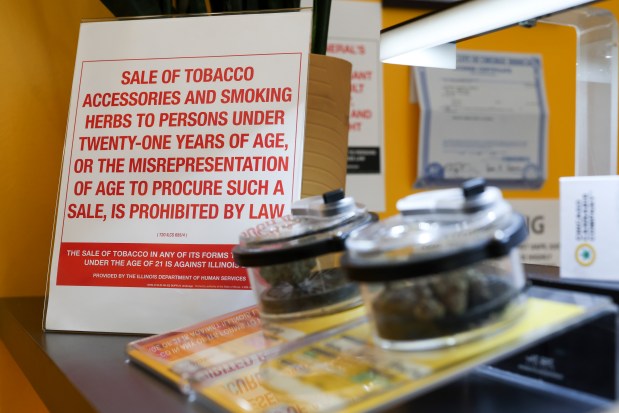SPRINGFIELD — Despite garnering strong bipartisan support from lawmakers, legislation that would make significant changes to the state’s embattled Prisoner Review Board was not called for a vote in the Illinois House before the chamber adjourned for the summer on Wednesday.
After earlier passing the Senate without any no votes, the bill passed 15-0 through the House Judiciary Criminal Committee on Tuesday night. But Jaclyn Driscoll, a spokesperson for House Speaker Emanuel “Chris” Welch, said lawmakers ran out of time to consider it in a full vote while focusing on priorities including a $53.1 billion budget.
But even if it had been called and passed, it’s uncertain whether Gov. J.B. Pritzker would have signed it into law. He’s indicated that while he supported parts of the bill, he took exception with the way it was written.
“There are aspects of that bill that are fine and some aspects of it, frankly, that are just unacceptable. It’s not about transparency to be honest with you. It’s about what’s actually possible, what’s doable,” Pritzker said Wednesday about six hours after the House concluded its spring session. “Also, funding. There was no funding for any of the things that they suggested that we should do.”
Pritzker in March suggested there could be changes to some of the board’s practices after the panel released a parolee, 37-year-old Crosetti Brand, who authorities say then killed 11-year-old Jayden Perkins and attacked the boy’s mother, with whom Brand once had a relationship. Days after the attack, the board’s chairman, Donald Shelton, and board member LeAnn Miller, who drafted the order authorizing Brand’s release, resigned.
The bill would require the board to publish on its website information for victims about how to submit victim-impact statements for the board to consider in its deliberations. This would apply to victims of domestic violence who’ve filed orders of protection against their abusers, who may be considered by the board for early release.
The bill would also require the board to make more hearings available to the public via live broadcast on the board’s website, where recordings of the hearings would have to remain available for at least 18 months. This would include mandatory supervised release revocation hearings, which could run to hundreds or even thousands of recordings each year.
By July 2025, a task force put together to improve the review board would report to the governor and legislature “on whether additional open meetings of the Board shall be available to the public for live broadcast along with an implementation plan to accomplish this.”
Jordan Abudayyeh, a Pritzker spokesperson, has said the proposal would be difficult for the review board to manage “given the volume of work they are expected to process every month.” She said the governor’s office supports increasing transparency at the board and is working on an executive order to incorporate some of what’s in the legislature’s proposal.
As of Wednesday, the bill had more than 70 House sponsors. Supporters included conservative Republicans and progressive Democrats, an unusual show of unity between two parties on a high-profile criminal justice issue.
The bill’s main House sponsor, state Rep. Kelly Cassidy, could not be reached for comment Wednesday. But during the House committee hearing Tuesday night, she indicated that any unforeseen flaws in the legislation were fixable.
“My intention has always been for the task force that’s in the underlying bill to take a much deeper dive into those pieces to make sure that we get the level of transparency that’s required as well as functionality in this system,” said Cassidy, a Chicago Democrat. “And so, this is something that if there are unintended consequences, we can address them.”
The measure in its initial form passed 106-0 in the House on May 20 before sailing through the Senate six days later in a 58-0 vote, the same day the Senate adjourned for the summer. But due to changes made to the legislation in the Senate, the bill had to again go through the House.
Driscoll acknowledged on Wednesday the legislation could still be considered by the House when it returns for its fall veto session later this year.



